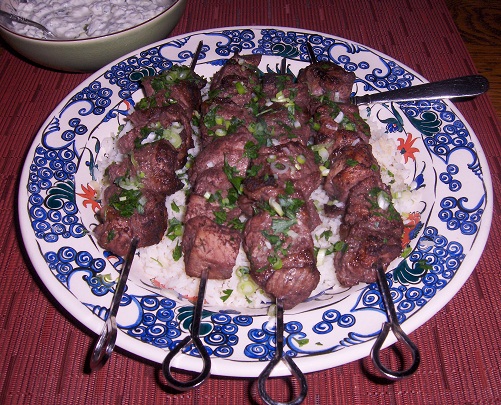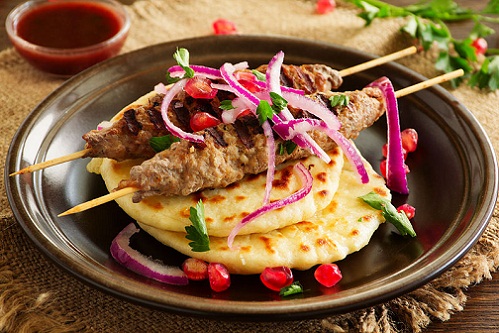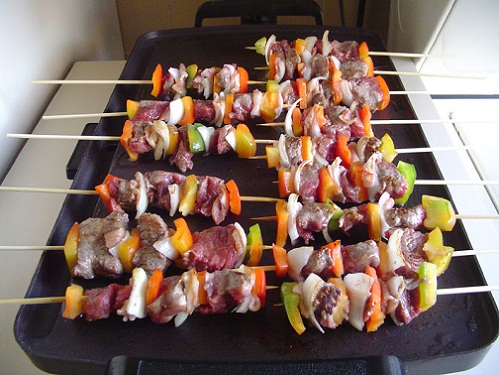|
By any other name, which might include shish kebab, kebab, brochette, satay or yakatori, a kabob, as we Americans call them, is grilled food on a stick. They are believed to have originated in Turkey, at least the source word did, Şiş, meaning skewer and kebab meaning lamb or mutton in Turkish. The term has been in use for eons and has traveled far. The concept is common from Turkey and Greece east and north all the way across the Eurasian steppes and on to Japan and Korea; and from the Middle East and Africa along southern routes to include India, Himalayan heights across Indochina and onto the Philippines. Like other good ideas, grilling small pieces of food on disposable utensils probably had many inventors. Its appeal to nomads and trade route vendors is fairly obvious. This was convenient fast food at its best. As this good idea spread around the world, it picked up many new flavors in addition to a considerable number of names. Cultures adapted and adopted, as they always do, borrowing and lending as supplies and tastes allowed. Homer noted the method as used by conquering soldiers using fish. Asian soldiers preferred to grill their version on the tips of their ever-ready swords. Rumor has it that Christopher Columbus was enamored of the Portuguese beef espetadas. You can cook almost anything but soup on a stick as evidenced by today’s use of the method to cook everything from meats, fish and vegetable to fruit. Skewers are now available in re-useable stainless steel, and non-stick types of metals. Of course, that means they have to be washed, so there is some debate as to whether or not that is an improvement. Bamboo skewers are universally available and require only soaking in water for about an hour before use. Today’s recipe is Spicy Grilled Lamb Kabobs. Keep those grills fired up and working!
0 Comments
Leave a Reply. |



